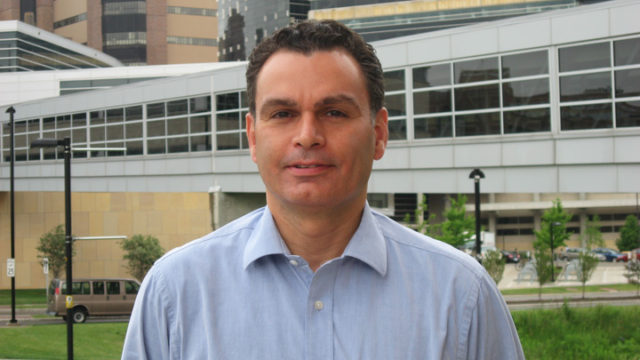
Robert Thorne, assistant professor in the Pharmaceutical Sciences Division, KL2 Scholar, University of Wisconsin Institute for Clinical and Translational Research, and Trainer, Neuroscience Training Program, Clinical Neuroengineering Training Program, and Cellular and Molecular Pathology Graduate Training Program, will represent the Neuroscience training program as the featured speaker for “Brain Awareness Week” in UW-Madison’s Wednesday Nite @ the Lab (WN@tL) lecture series this March.
Thorne’s talk entitled, “Special Delivery: How Drugs and Other Substances Get into and Move around within the Brain and Spinal cord,” will cover his brain barrier research, providing an overview of the brain, its complex environment, the highly specialized barriers that guard it from blood-borne molecules, and recent research into how we might overcome the brain’s many defenses to develop better therapeutics for the treatment of neurological disorders.
The event will be held March 15, 2017 from 7-8:15 p.m. at the Genetics/Biotechnology Center, Room 1111, The Auditorium, 425 Henry Mall. Admission is free and open to the public.
For over a decade, UW-Madison alumni and the general public have been welcomed at WN@TL, a weekly public science series offered 50 times per year on Wednesday nights. WN@TL features UW-Madison researchers describing their investigations and inventions that help advance the Wisconsin Idea: the principle that the university should improve people’s lives outside the classroom.
The series’ speakers cover a wide range of research projects taking place on the UW campus, across Wisconsin, and around the world on topics including engineering and technology research, astronomy, zoology, and bioethics to biomedical engineering.
Thorne’s research Interests include mechanisms and strategies for the central nervous system delivery and distribution of biologics (peptides, proteins, siRNA, nanoparticles, and viral gene therapy vectors). In addition, focus on antibody-based drugs and adeno-associated virus vectors for gene therapy; intraparenchymal, intrathecal and intranasal routes of administration.